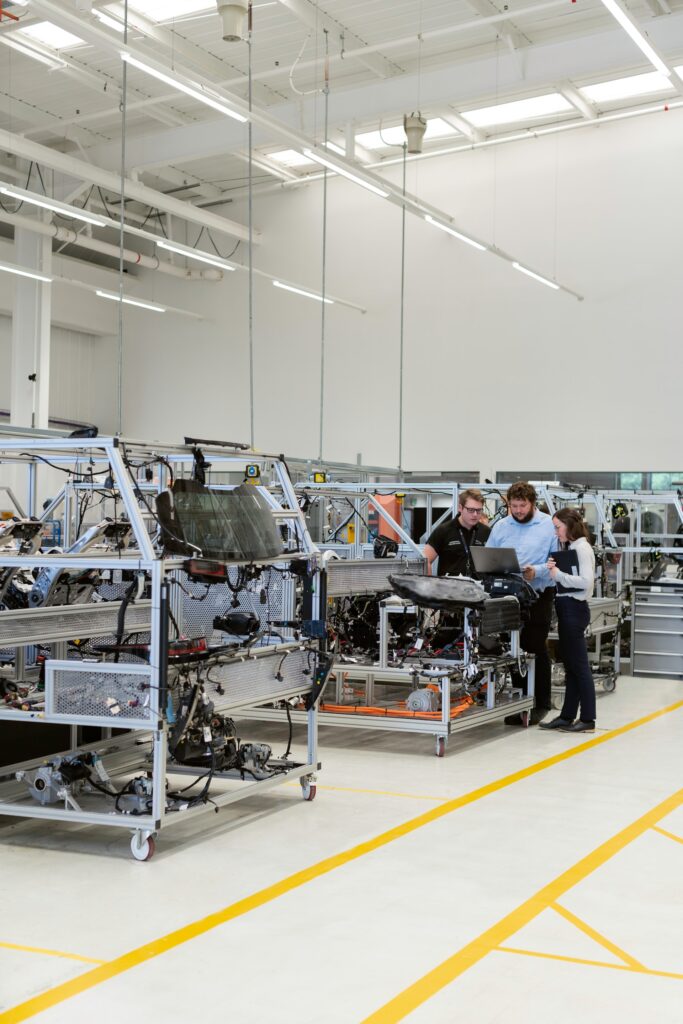DevOps adoption is growing by leaps and bounds, driving the global market to $10.31 billion by 2023. Cost savings, better quality, faster time to market—the benefits of DevOps are too many to pen down.
Amidst the growth of DevOps, many businesses are unsure whether they are the right candidates for transformation. The lack of a definite structure contributes to the problem, as DevOps is a culture and set of approaches.
Lodus decided to make things a bit clear and spell out a few industries that can benefit from DevOps. You can get a better idea of whether your organization will benefit from DevOps and the pros you are looking at.
Next, we will explore whether DevOps is still relevant and the path of transformation it is taking.
So, let’s start with the most obvious industry.
1. Tech
Technology is the ideal ground for DevOps to score a home run. The amalgamation of the Dev and Ops teams helps you release faster. However, that’s not the only place where the culture shines.
DevOps can help you improve quality beyond imagination. Take the case of Amazon, for example. Using AWS and DevOps methodologies, Amazon reduced deployment failures to 1 out of every 100,000 for their website.
Along with that, Amazon deployed new software to their production servers every 11.6 seconds on average. On their busiest days, the tech giant pushed 1,079 fresh deployments to production daily.
Moreover, Amazon was able to save millions of dollars.
2. Finance

The finance industry was one of the first industries to transform digitally. No wonder it would also lead the pack in DevOps adoption. Any business in finance now has to deal with software and app development to offer its services.
Additionally, finance companies need to comply with a range of state and corporate regulations. On top of that, they also have to release quickly to stay above the competition.
DevOps comes as a natural choice for the finance industry. Leading players like HSBC, Capital One, and Barclays already use DevOps to woo their customers.
You can, too, break out of your monolith architecture and embrace DevOps elements like microservices for business success.
3. Entertainment & Streaming
Streaming platforms like Netflix use their share of DevOps to provide the best viewing experience. Have you ever noticed how sometimes the “Recommended Picks” in Netflix doesn’t work? However, you can still use Netflix as usual and watch what you want.
You can thank DevOps for helping Netflix fail like a champ. Using DevOps approaches, you can keep your services running even when parts of your application malfunction. That means Netflix viewers can enjoy their favorite series even if the recommendations don’t work.
Disney is another company reaping the benefits of DevOps that include:
- Scaling and running thousands of servers
- Providing more content to viewers quickly
- Reducing technical resource usage
- Updating countless servers with less time and effort
4. Retail
The retail industry is going through a massive transformation. Businesses are competing to hold on to their customers in the face of eCommerce. Naturally, leaders like Starbucks took to DevOps a long time back to provide an awesome customer experience.
Thanks to agile development, Starbucks could reduce the steps in its app development value stream by 41%. Additionally, its release cycle time came down by 74% to just 22 days. So, you can release more often, update more frequently, and add new features without disruptions.
DevOps benefits can also help businesses in retail to provide an omnichannel journey. You can use agile technologies and approaches to:
- Manage shelf inventory
- Improve supply chain management and cut costs
- Deliver quickly
In short, DevOps can help the retail industry to improve customer experience.
5. Healthcare

However, most healthcare organizations operated in silos, and teams used different apps. The huge volume of data coupled with disparate systems made the situation worse.
Businesses in healthcare have been slow to adapt to change. Finally, the industry had to wake up, thanks to electronic health records and the digitization of patient data.
Optum, a sister venture of UnitedHealthcare, faced the same problem. Being the largest healthcare company’s child endeavor, Optum couldn’t achieve the speed and stability it desired.
DevOps provided the way out for Optum as early as 2014. The company shifted to a centralized and scalable platform and was able to exchange information seamlessly across consumers.
The perks also included low costs, quick releases, and a much-needed standardization.
6. Hospitality
The hospitality industry now depends heavily on apps and booking software. DevOps is ideal for accelerating deployments and speeding up design for quickly releasing solutions. Innovation in hospitality can also be facilitated by DevOps, apart from improving your customer service.
The Australian Tourism Association used DevOps and cloud to tie multiple legacy platforms owned by individual states. The association was also able to bring down costs and provide a better service.
Thanks to DevOps, they can now support high workloads, like processing over a million API requests efficiently.
Travel companies like Tavisca and Amadeus also use DevOps to stand out.
7. Telecom
The telecom and internet industry relies heavily on IT infrastructure. Naturally, the infrastructures are quite complex, difficult to scale, and run up huge costs. Offering uninterrupted services and keeping up with the latest innovations are also included in the telecom industry’s challenges.
Fortunately, DevOps is here to save big businesses like Verizon and Vodafone. Verizon has been a pioneer in adopting DevOps that involved activities like:
- Adopting large-scale automation
- Orchestration of app releases
- Rewriting apps as microservices
- Using containerized applications for cloud
The biggest benefit of DevOps for telecom is managing and updating infrastructure. You can treat infrastructures just like an app and update or release changes in increments.
8. Automobile

Driving a Tesla makes you aware of how the automobile industry has progressed in a few decades. Now, you also need to run firmware updates for your car to enjoy the latest technology and functions.
It’s not surprising that the automobile industry will also walk the path of DevOps. Brands like BMW, Jaguar, and Mercedes-Benz have already tried their hands on agile methodologies.
From releasing features to upgrades, benefits of DevOps can revolutionize the automobile industry. You can release updates, add features, and make changes to the software over-the-air. Just making some changes in the car’s coding may help turn a boring, stressful commute into a safer, more fun commute.
9. Defense
The defense industry was waiting to go agile for a long time. You need to write endless lines of codes to drive today’s fighter jets and submarines. The traditional tools are not enough to keep pace with your enemies.
DevOps can easily address the challenges of the defense industry and make it more resilient. You will be able to market faster and update your fleet without the complexities.
Companies like Northrop Grumman and even The Department of Defense now exploit the benefits of DevOps.
Is DevOps Still Relevant in 2023?
It has been many years since DevOps came into the picture in 2007. The widely adopted methodology bridged the gap between development and operations teams.
DevOps allows agile development, enabling faster deployments and improved efficiency. However, is DevOps still relevant in today’s rapidly evolving technological landscape?
Let’s dive into the current state of DevOps and its potential future trajectory.
Some Say DevOps Is Dead
The role of DevOps engineers is becoming less critical due to the automation of many operational tasks. Many developers are now responsible for their application stack from end to end.
It undermines the need for a separate DevOps team.
The mushrooming cloud solutions in the market automate many DevOps responsibilities. Moreover, business revenue generated from cloud services is contributing to the shift.
Gartner predicts cloud spending may climb to $600 billion in 2023. It indicates that many responsibilities handled by DevOps engineers don’t exist today.
Moreover, services like Paas, SaaS, and Iaas further automate or even reduce the need for developer’s time.
For example, many eCommerce and online store platforms let you build your website. Additionally, serverless services are becoming popular with each passing day.
As a result, businesses don’t have the need for a separate DevOps team. They are hiring engineers who can take charge of the whole application stack.
The Emergence of Platform Engineering

Most businesses don’t embrace DevOps in its totality. They either misinterpret it or apply it to the wrong use cases.
Therefore, these organizations cannot adopt the DevOps principles and culture. They only hire a DevOps engineer that doesn’t provide full value.
The perception is changing to make way for a mature and evolved version of DevOps. It has transformed to prioritize enablement and engagement of IT operations.
The new approach lets businesses achieve sustainability and growth in cloud-native environments. Moreover, managing infrastructure is becoming more agile.
Platform engineering (PE) has emerged to make this possible. Developers can forget pesky maintenance stuff and focus on their actual responsibilities.
PE creates reusable and self-service platforms that make software delivery a hassle-free experience. A developer can rely on tools and workflows to deploy code to production environments.
Most importantly, developers are not frustrated by complexities that come in the way of smooth systems. A lot of their work goes into repetitive work and keeping things going.
PE frees developers’ time and enables innovation. It helps developers churn out code faster without disruptions and minimal overhead.
The primary areas of focus for PE are developing and managing:
- Runtime environments
- CI pipelines
- Kubernetes infrastructure
- Automated testing systems
- Software releases
Has Platform Engineering Replaced DevOps?
Automation has transformed many operational aspects of software development, freeing developers’ time to focus on DevOps challenges. However, this does not make DevOps obsolete.
Instead, it focuses on enabling developers and fostering a collaborative environment.
The emergence of platform engineering is an evolution of DevOps. It is a response to complex infrastructures and operational challenges.
PE aligns DevOps goals and encourages collaboration while providing standardized frameworks for developers. Instead of replacing DevOps, platform engineering complements the methodology.
The new approach helps organizations scale and handle the pressure to deliver code faster.
The Future of DevOps
DevOps has changed to adapt to the evolving technological landscape. However, DevOps is not going away.
The DevOps market is predicted to grow by 20% CAGR between 2023 to 2032. Therefore, we can indeed say DevOps is not dead and is still going strong.
Moreover, the increasing demand for automated testing and development tools indicates its continuing relevance.
The focus of DevOps teams is likely to shift towards innovation rather than maintenance as automation takes over tedious tasks.
One potential challenge is shifting towards more complex concepts, such as AI and ML, due to the automation of entry-level work. The IT skills shortage poses a significant issue in this regard.
Organizations must address this gap to ensure a smooth transition to new skill sets.
Final Thoughts
DevOps remains relevant in the IT industry, but its role is evolving. The automation of operational tasks and PE are shaping the future of DevOps.
Developers are increasingly taking on DevOps responsibilities while organizations embrace enablement and collaboration.
DevOps’s underlying principles and objectives continue to drive effective software delivery. Developers should embrace PE and stay updated to remain relevant and productive.




